Top Class Actions’s website and social media posts use affiliate links. If you make a purchase using such links, we may receive a commission, but it will not result in any additional charges to you. Please review our Affiliate Link Disclosure for more information.
A federal judge in Minnesota shot down attempts by President Donald J. Trump’s campaign to get a class action lawsuit against it over unsolicited texts dismissed earlier this month.
The case against Trump’s campaign was brought last year by three people who claim the president’s campaign violated the Telephone Consumer Protection Act.
Unwanted Political Texts Lead to Legal Action
Dan Pederson, Connor Olson, and Shell Wheeler filed their class action lawsuit against the Trump campaign in October 2019 in U.S. District Court in Minnesota. They claim the campaign sent them automated political text messages without their consent.
Olson and Wheeler say they were invited to a political rally, according to the lawsuit. Pedersen says his messages directed him to visit the Trump campaign’s website and to “stand with Trump” in support of another candidate for political office.
All of the messages, they argue, were sent by an auto-dialing device used by the campaign and none of the plaintiffs signed up to receive them, they say.
The campaign responded to the lawsuit with several arguments refuting the allegations and asked U.S. District Chief Judge John R. Tunheim to toss the case out. On June 8 he refused.
Campaign’s Defense
Overall, the campaign sought to have the class action dismissed because the text messages – less bothersome than a telephone call or email message – did not create enough of an “injury” to the plaintiffs under the Telephone Consumer Protection Act, the National Law Review reported.
The Trump campaign also argued in its response to the lawsuit that Pedersen had actually signed up for the political texts and that one of the messages sent to him could not be traced back to the campaign.
Among the campaign’s other legal arguments included claims that the plaintiffs could not prove that an autodialer had been used to send the texts and their lawsuit failed to provide any detailed allegations about the device, The National Law Review reported.
Telephone Consumer Protection Act Overview

The Federal Communications Commission is charged with enforcing the act and in 2012, responding to new technology and marketing trends, it revised its rules regarding the TCPA. From that point on, according to FCC guidelines, telemarketers of any kind were required “to obtain prior express written consent from consumers before robocalling or texting them.”
Judge’s Findings and Ruling
Judge Tunheim rejected all of the Trump campaign’s arguments against the class action lawsuit.
On the question of whether the allegations warranted legal action, Judge Tunheim ruled that a single text message in violation of the TCPA is grounds enough to file suit. “A text message, while a different format than a phone call, voicemail, or fax, presents at least an equivalent level of disturbance and injury,” the National Law Review quoted his opinion as stating.
Regarding the campaign’s insistence that Pedersen signed up to receive the political texts, the judge noted that in addition to Pedersen denying having done so, the name and phone number entered into the campaign signup form were the only two pieces of accurate information given, according to a report on the ruling by Law360. The campaign failed to prove who signed up for the messages — Pedersen, someone else or an automated “bot,” the judge reportedly said.
The Donald J. Trump For President Inc. Class Action Lawsuit is Pederson, et al v. Donald J. Trump For President Inc., Case No. 0:19-cv-02735 in the U.S. District Court for the District of Minnesota.
Join a Free TCPA Class Action Lawsuit Investigation
If you were contacted on your cell phone by a company via an unsolicited text message (text spam) or prerecorded voice message (robocall), you may be eligible for compensation under the Telephone Consumer Protection Act.
This article is not legal advice. It is presented
for informational purposes only.
ATTORNEY ADVERTISING
Top Class Actions is a Proud Member of the American Bar Association
LEGAL INFORMATION IS NOT LEGAL ADVICE
Top Class Actions Legal Statement
©2008 – 2024 Top Class Actions® LLC
Various Trademarks held by their respective owners
This website is not intended for viewing or usage by European Union citizens.
A California federal judge has granted final approval to a $32 million class action lawsuit settlement with Bank of America and FIA Card Services, resolving claims the defendants violated the Telephone Consumer Protection Act by calling or texting consumers’ cell phones without consent.
U.S. District Judge Edward J. Davila signed off on the Bank of America TCPA class action settlement on Aug. 29 despite concerns that claimants would receive an average recovery of between $20 to $40.
Other TCPA class action settlements, he noted, have provided Class Members with between $100 to $300 or more.
“Of course, it is unlikely that a settlement would result in claimants receiving the full $500 or $1,500 per violation they might be entitled to under the TCPA. Even so, the $20 to $40 range falls in the lower range of recovery achieved in other TCPA class action settlements,” Davila said.
However, “the amount of the Settlement Fund, considered in light of the size of the Class, is in line with recoveries obtained in similar TCPA class action settlements,” including Arthur v. Sallie Mae, he said.
Approximately 7 million consumers were eligible to claim money under the Bank of America TCPA class action settlement. The deadline to file a claim was March 21, 2014.
In addition, Judge Davila approved the requested $2,000 award to each of the seven named plaintiffs but reduced Class counsels’ requested $8 million in attorneys’ fees and costs to approximately $2.4 million.
The cases are Stephanie Rose, et al. v. Bank of America, et al., Case No. 11-cv-02390-EJD and Carole Duke & Jack Poster, et al. v. Bank of America, et al., Case No. 12-cv-04009-EJD, in the U.S. District Court, Northern District of California.
Join a Free TCPA Class Action Lawsuit Investigation
If you were contacted on your cell phone by a company via an unsolicited text message (text spam) or prerecorded voice message (robocall), you may be eligible for compensation under the Telephone Consumer Protection Act.
This article is not legal advice. It is presented
for informational purposes only.
ATTORNEY ADVERTISING
Top Class Actions is a Proud Member of the American Bar Association
LEGAL INFORMATION IS NOT LEGAL ADVICE
Top Class Actions Legal Statement
©2008 – 2024 Top Class Actions® LLC
Various Trademarks held by their respective owners
This website is not intended for viewing or usage by European Union citizens.






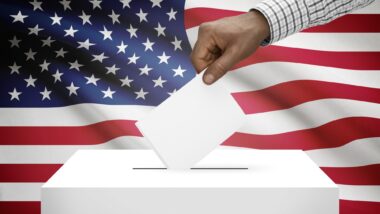


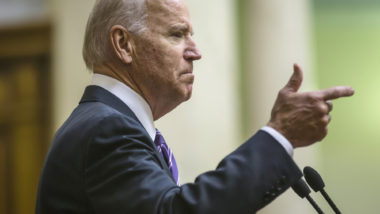

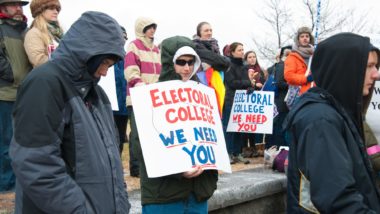
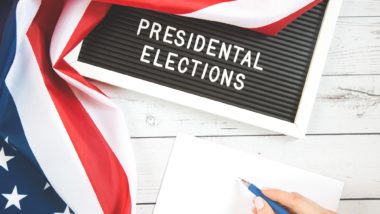

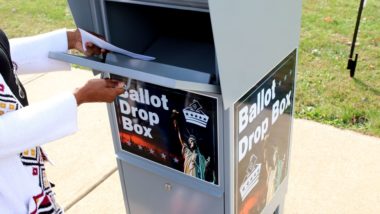

6 thoughts onJudge Refuses to Dismiss Class Action Against Trump Campaign Over Political Texts
Add ne
Please add me
please add me his ridiculous campaign does nothing but not only text message me, but now email me incessantly. I cannot get them to stop
you settle for 40.00???why… you are entitled to 500.00 to 1500.00 per text. file a civil suit and do it yourself. or be happy with the 40.00 3 yrs from now when you get it.
Add me
please add me